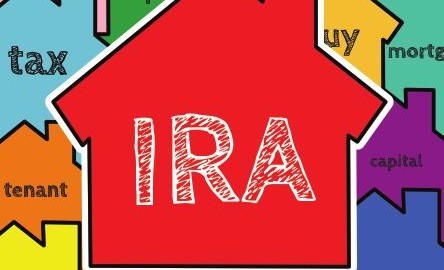Why Sponsorship Marketing is a Win-Win
By LAURA ALAMERY
Many of you will immediately associate sponsorship with sports; your name on the team jersey, a display ad printed in the game programs, your logo emblazoned on a prominent banner waving in the wind. You may be pleasantly surprised to learn that sponsorship marketing is far from being exclusive to the sporting world and humanitarian causes. And, it may just be the answer to integrating your brand into the local community; creating a loyal following of believers in your product or services.
Sponsorship vs. Advertising: What’s the difference?
Sponsorship marketing is one of the most effective and affordable ways for a growing business to gain plenty of exposure. By showing your support for (or alliance with) small and local businesses, sponsorship allows you to get your message out in front of a highly desirable audience; your community, your industry niche. Sponsorship marketing also provides the opportunity of an ongoing relationship, giving you more time to really nurture potential customers and gain their loyalty (and referrals).
Advertising, on the other hand, is a huge expense (especially for a startup business). One simple placement in a popular industry magazine – or several 30 second radio spots a month on your local station – can run into the hundreds of dollars. Your return on investment (ROI) is minimal, because the few seconds you’ve got anyone’s attention is not likely to convert to sales. And, the trial and error you’ll experience while finding what works for your company – and doesn’t – can be painful and time consuming.
Advertising is about quantity. Sponsorship is about quality.
Putting Sponsorship Marketing to Work
Whether online or onsite, this method for getting out your message and building brand recognition is superior to many others. Don’t miss the many types of marketing available to sponsors:
- Reaching a Target Audience: Remember, with sponsorship marketing your ideal prospect is essentially already in place, and you have their attention. Make good use of it! Sponsoring the right company means you skip about 20 different task levels in narrowing down the right consumers for your products and services!
- Standing above competition: Customers take many things into consideration when choosing to spend their money. While the cost and quality of your services (or products) are key factors, your commitment to the economic development of their local community will definitely influence their decision.
- Extensive brand exposure: In most cases, sponsorship marketing involves more than just writing a check. You will be given varied ways to introduce yourself to an attentive audience – in person or online, or both. From speaking at group meetings, to brand placement on coveted group web pages; from vendor table opportunities to guest posting. It’s a class act.
- Business collateral is a must: Here’s a chance to display your logo and message (banners, table runners) at events and distribute your cards, brochures, giveaways like cups or pens, etc. This goes so much further than wasting hundreds of dollars a year with a neighborhood newspaper ad; thrown into driveways, only to be rained on, run over and tossed in the trash.
- Be generous and tasteful: Go the extra mile and have your gift or donation for drawings branded with your logo. Use subtle yet creative ways to make sure the recipient knows (as well as the audience) that it’s your company providing the gift. Thoughtful, useful items may be kept for many years.
Sponsorship marketing is an excellent means of making the most of your valuable time and hard earned dollars. It is a mutually beneficial strategy to achieving meaningful business goals. Hence, the win-win.
Laura’s Story…
 I was born and raised in beautiful Vicenza, Italy – only 40 miles from lovely Venice on the Adriatic Sea. I used to hang out at the top of this hill as a teenager, where I could see the whole city stretched out before me.
I was born and raised in beautiful Vicenza, Italy – only 40 miles from lovely Venice on the Adriatic Sea. I used to hang out at the top of this hill as a teenager, where I could see the whole city stretched out before me.
Laura Alamery investor
In 1985 I relocated to United States, moving to Honolulu in 1987 where I became a college student at Hawaii Pacific University; just 4 miles from the beaches of Waikiki. I began developing a keen interest in real estate, so I started reading everything I could find – watching late night infomercials and buying courses by Dave Del Dotto, Robert Allen and Carlton Sheets.
My Real Estate Career Begins
That same year I became a real estate agent, to help pay for my college studies. I joined Dolman and Associates in Honolulu, and right away I was inspired by some of the top agents on the island. I began following their lead and in my first year in the industry, I became a multi-million dollar producer!
In 1991, I graduated with a Bachelor of Science in Business Administration and moved to Missouri that same year. Once on ‘the mainland,’ my real estate career really took off. I started to purchase properties with no money down, using creative financing.
I continued my education by earning an MBA in Finance, still working part-time in real estate. Then I began a new career as an assistant controller in metal commodities, planning to climb the corporate ladder and keep real estate as a side business.
From Part-Time to Full-Time
By the mid-1990s I had already acquired a sizable portfolio (over 20 properties) consisting mostly of multi-families for rental income – and I was barely 30 years old! I was making more money in part-time real estate (less than 10 hours a week) than my full-time corporate job, so in 1996 I decided to flip the switch and devote myself entirely to real estate. Once I was able to immerse myself full-time into real estate investing, my career skyrocketed.
In 1997, I began sharing my knowledge of real estate investing, proven strategies and creative financing techniques by hosting real estate seminars. And, given the widespread use of the Internet, I decided to also share my practical knowledge and experience as well via online mentoring and coaching. In 2010, I opened The REI Lab, Inc. – the culmination of various companies I had started and closed in the past.
The Next Chapter Unfolds
With a love for laid back lifestyle and great weather (I really missed being near the water), I decided to relocate once more in May of 2015. This time the move was to Broward County, Florida; midpoint between Miami and Fort Lauderdale. Laura Alamery Miami investor
The Miami-Dade area is full of opportunities, and 59% of the real estate transactions here in 2016 were cash – more than twice the national average according to the National Association of Realtors!
































 Simply put, negotiation is when two or more people try to reach an agreement about something. When you are a real estate investor this will almost always involve the sale of a property. Negotiation is not only about money. It might be about “terms” or something else the seller needs. Regardless, at the end of every negotiation, both parties should feel like they won. When everyone leaves the table feeling good you have just completed a successful negotiation.
Simply put, negotiation is when two or more people try to reach an agreement about something. When you are a real estate investor this will almost always involve the sale of a property. Negotiation is not only about money. It might be about “terms” or something else the seller needs. Regardless, at the end of every negotiation, both parties should feel like they won. When everyone leaves the table feeling good you have just completed a successful negotiation.
 Sharon Vornholt is the owner of Innovative Property Solutions in Louisville, KY. She has been investing in real estate for over 15 years. Sharon is the creator of the Louisville Gals Real Estate Blog, and the popular podcast “Let’s Talk Real Estate Investing” which you can find on iTunes. She is also a mentor and coach who loves teaching others how to succeed in this business.
Sharon Vornholt is the owner of Innovative Property Solutions in Louisville, KY. She has been investing in real estate for over 15 years. Sharon is the creator of the Louisville Gals Real Estate Blog, and the popular podcast “Let’s Talk Real Estate Investing” which you can find on iTunes. She is also a mentor and coach who loves teaching others how to succeed in this business. 
 Tell us about the hotel. Where and how did you find it?
Tell us about the hotel. Where and how did you find it?  Stacee, I’ve personally seen your growth as an investor the past five years that we’ve known each other, and let me just say how proud I am of you! I know you left the corporate world years ago to become a full-time real estate investor. You made it happen! Can you share some inside tips for others who want to leave their corporate job and be their own boss through real estate?
Stacee, I’ve personally seen your growth as an investor the past five years that we’ve known each other, and let me just say how proud I am of you! I know you left the corporate world years ago to become a full-time real estate investor. You made it happen! Can you share some inside tips for others who want to leave their corporate job and be their own boss through real estate? Stacee Nelson is a Fund Manager for Purple Rooster Holdings, LLC, a private equity fund that purchases distressed residential properties and notes. As a real estate investor, she has purchased and turned around multiple single family residences, residential and commercial notes, and hotels. She owns investment properties in several states and has successfully raised millions of dollars in private capital over the last few years.
Stacee Nelson is a Fund Manager for Purple Rooster Holdings, LLC, a private equity fund that purchases distressed residential properties and notes. As a real estate investor, she has purchased and turned around multiple single family residences, residential and commercial notes, and hotels. She owns investment properties in several states and has successfully raised millions of dollars in private capital over the last few years.